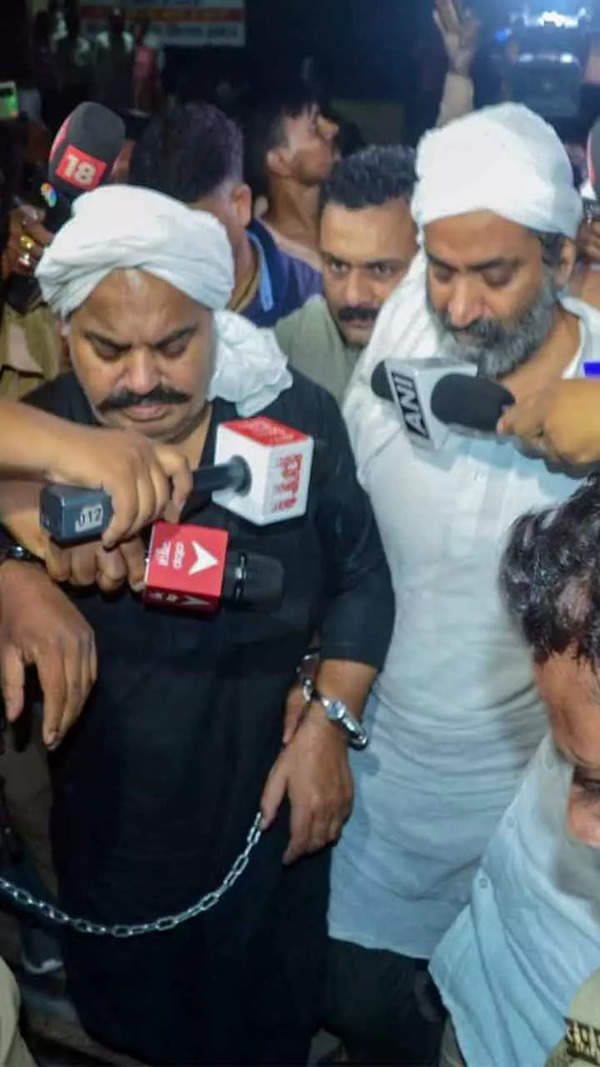- News
- City News
- nagpur News
- Edu department wants time-bound work by officers
Trending Topics
Edu department wants time-bound work by officers

Nagpur: The state education department has cracked the whip on bureaucratic delays at its district-level offices by directing them to complete tasks in a time-bound manner. This directive comes after the Bombay high court reprimanded the department following a case filed by a school which faced inordinate delays in getting some files cleared despite paperwork being in order.
The education department officials have been asked to ensure that unless there are legal impediments, no file about proposals/permissions/sanctions related to schools should be kept pending.
However, opinion is divided among academics.
Former school principal Tejinder Venugopal said, “I believe there is a lot of corruption in the education department. Things will be the same. They may want to change things and make policies but won’t be able to do it. If good officers come and things change that would be an added advantage for the education system. But I don’t think things will change this soon.”
She added that for various things, schools struggle to get their files moving. “We have heard that for Shalarth, appointments, approvals and everything, schools have to pay money otherwise files will be pending for years,” said Venugopal.
Mallika Kaleem, lecturer at a junior college, said, “I am sceptical about the effectiveness of this directive in solving all the bureaucratic problems in the department. While it is certainly a positive step, it is not a comprehensive solution. There are a multitude of bureaucratic hurdles that schools face, which go beyond just the processing of files. For instance, complex regulations and compliance requirements that schools must meet can often become a significant challenge.”
Another former school principal, Sunita Bajaj said, “Through the implementation of a time-bound process, the education department can guarantee that applications, proposals, permissions, and other files are processed swiftly, thereby increasing efficiency. This directive can motivate employees to establish new and precise objectives, as they will have the assurance that their applications and proposals will be handled quickly.”
Sapan Nehrotra, lecturer at a junior college, said, “Such action taken by the government is appreciable. They should make a portal to accept applications and show the file’s status online to maintain transparency.”
The circular cites the case of a school which was facing delay in getting one file approved, for which it had approached the court.
(Inputs: Kinshu Sharma)
The education department officials have been asked to ensure that unless there are legal impediments, no file about proposals/permissions/sanctions related to schools should be kept pending.
However, opinion is divided among academics.
Former school principal Tejinder Venugopal said, “I believe there is a lot of corruption in the education department. Things will be the same. They may want to change things and make policies but won’t be able to do it. If good officers come and things change that would be an added advantage for the education system. But I don’t think things will change this soon.”
She added that for various things, schools struggle to get their files moving. “We have heard that for Shalarth, appointments, approvals and everything, schools have to pay money otherwise files will be pending for years,” said Venugopal.
Mallika Kaleem, lecturer at a junior college, said, “I am sceptical about the effectiveness of this directive in solving all the bureaucratic problems in the department. While it is certainly a positive step, it is not a comprehensive solution. There are a multitude of bureaucratic hurdles that schools face, which go beyond just the processing of files. For instance, complex regulations and compliance requirements that schools must meet can often become a significant challenge.”
Another former school principal, Sunita Bajaj said, “Through the implementation of a time-bound process, the education department can guarantee that applications, proposals, permissions, and other files are processed swiftly, thereby increasing efficiency. This directive can motivate employees to establish new and precise objectives, as they will have the assurance that their applications and proposals will be handled quickly.”
Sapan Nehrotra, lecturer at a junior college, said, “Such action taken by the government is appreciable. They should make a portal to accept applications and show the file’s status online to maintain transparency.”
The circular cites the case of a school which was facing delay in getting one file approved, for which it had approached the court.
(Inputs: Kinshu Sharma)
Start a Conversation
FOLLOW US ON SOCIAL MEDIA
FacebookTwitterInstagramKOO APPYOUTUBE










